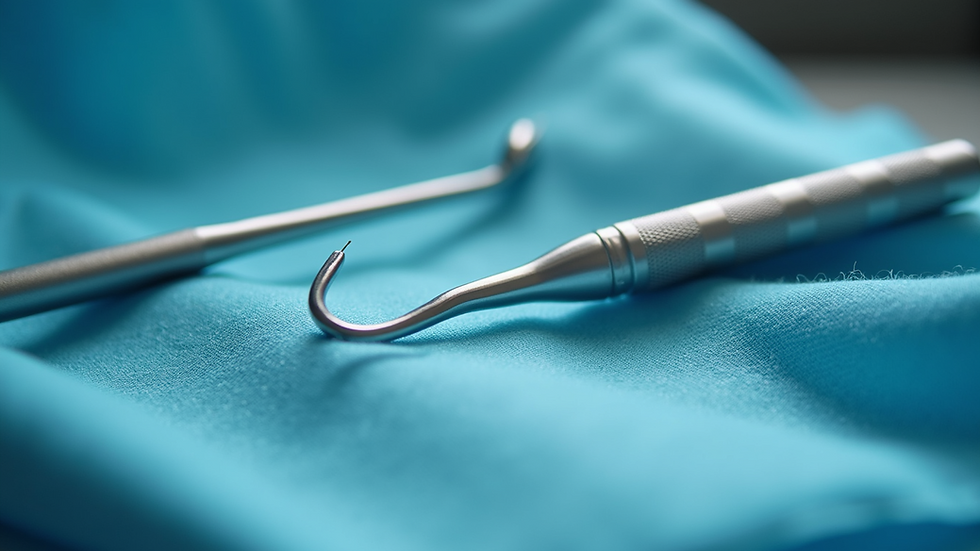How to Treat Tooth Decay Effectively
- Searoad-dental

- Jul 21
- 4 min read
Tooth decay is one of the most common dental problems affecting people of all ages. When left untreated, it can lead to severe pain, infections, and even tooth loss. Fortunately, understanding how to treat tooth decay effectively can help you maintain a healthy smile. In this post, we will discuss various aspects of treating dental cavities, from prevention to treatment options.
Treating Dental Cavities
Tooth decay begins when the enamel on your teeth becomes damaged due to acids produced by bacteria. These acids feed on sugars from the food you eat. Consequently, maintaining proper oral hygiene is crucial for preventing tooth decay. Daily brushing and flossing can significantly reduce the risk of cavities.
An important first step in treating dental cavities is visiting your dentist for regular check-ups. Dentists can identify early signs of tooth decay and suggest preventative measures. They may also provide professional cleanings to remove plaque and tartar buildup, which can contribute to decay.

Many people may wonder how long a cavity takes to form. Studies show that cavities can take anywhere from a few months to several years to develop, depending on individual factors such as diet, oral hygiene, and genetics. Being proactive and addressing any signs of decay early can help you avoid extensive treatments later.
How to Prevent Tooth Decay
Preventing tooth decay is often simpler than treating it. Here are some effective strategies:
Brush and Floss Regularly: It's essential to brush your teeth at least twice daily and floss once a day. Use fluoride toothpaste to help strengthen tooth enamel.
Limit Sugar Intake: Reducing your consumption of sugary foods and drinks can significantly decrease your risk of tooth decay. Try to choose healthier snacks like fruits and vegetables.
Drink Water: Staying hydrated with water can help wash away food particles and bacteria. Opt for fluoridated water whenever possible, as fluoride can strengthen teeth.
Use Mouthwash: A fluoride mouthwash can provide extra protection against cavities. Rinse daily for optimal results.
Regular Dental Visits: Schedule routine exams and cleanings at least twice a year. Your dentist can catch early signs of decay and recommend appropriate treatments.

By incorporating these habits into your daily routine, you can significantly lower your chances of developing cavities and maintain a healthy smile.
Does Tooth Decay Can Be Fixed?
Yes, tooth decay can be fixed, depending on its severity. When cavities form, it's important to consult a dentist promptly to determine the best course of treatment. Let's explore some of the options available:
Fluoride Treatment: If tooth decay is caught early, fluoride treatments may help to remineralize the enamel. These treatments can reverse early decay and strengthen your teeth.
Fillings: For more advanced cavities, fillings may be necessary. The dentist will remove the decayed portion of the tooth and fill it with a material such as composite resin or amalgam. You can learn more about the different filling options and their benefits through tooth decay treatment.
Crowns: If the tooth is severely decayed, a crown may be required. The dentist will remove the decayed portion and place a crown to restore its shape and function.
Root Canal: This procedure is necessary if the decay has reached the tooth's pulp. The dentist will remove the infected pulp, clean the root canals, and seal the tooth to prevent further infection.
Extraction: In cases of extensive decay, extraction may be the only option. The dentist will remove the damaged tooth to prevent the spread of infection. After extraction, options such as implants or dentures can be discussed.

It's essential to address tooth decay as soon as you notice symptoms, such as pain, sensitivity, or visible holes in your teeth. Early intervention ensures better treatment outcomes and can prevent more extensive procedures down the line.
Lifestyle Changes to Support Dental Health
In addition to regular dental visits and good hygiene practices, making some lifestyle changes can also help support your dental health and prevent tooth decay:
Eat a Balanced Diet: A diet rich in vitamins and minerals contributes to good oral health. Foods high in calcium, such as dairy products, leafy greens, and nuts, can help strengthen teeth.
Chew Sugar-Free Gum: Chewing sugar-free gum increases saliva flow, which helps neutralize acids and wash away food particles. Look for gum that contains xylitol, as it can help fight cavity-causing bacteria.
Quit Smoking: Smoking not only affects your overall health but also increases the risk of gum disease and tooth decay. If you smoke, consider seeking help to quit.
Use a Straw: When consuming sugary or acidic drinks, using a straw can minimize contact with your teeth, reducing the risk of decay.
Stay Informed: Keep yourself educated about oral health, and stay updated on the latest dental news to make informed choices about your dental care.
Incorporating these changes into your lifestyle can further enhance your dental health and reduce the risk of developing cavities.
Final Thoughts on Treating Tooth Decay
Maintaining good oral hygiene and making informed lifestyle choices is crucial in preventing tooth decay. Early detection and treatment can save you from pain and expensive procedures. Remember to schedule regular visits with your dentist, practice effective oral hygiene, and adopt a balanced diet to keep your smile healthy.
By following these guidelines, you can effectively treat tooth decay and enjoy a life free from dental issues. Taking charge of your oral health today can ensure a brighter, healthier smile for tomorrow!




Comments